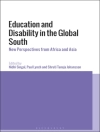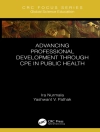“This book was written late in the North American night, with the rumbling thuds and booming train horns of the nearby rail yard echoing through my windows, reminding me of the train hoppers and gutter punks out there rolling through the darkness.”
In
Drift, Jeff Ferrell shows how dislocation and disorientation can become phenomena in their own right. Examining the history of drifting, he situates contemporary drift within today’s economic, legal, and cultural dynamics. He also highlights a distinctly North American form of drift—that of the train-hopping hobo—by tracing the hobo’s legal and political history and by detailing his own immersion in the world of contemporary train-hoppers. Along the way, Ferrell sheds light on the ephemeral intensity of drifting communities and explores the contested politics of drift: the strategies that legal authorities employ to control drifters in the interest of economic development, the social and spatial dislocations that these strategies ironically exacerbate, and the ways in which drifters create their own slippery forms of resistance. Ferrell concludes that drift constitutes a necessary subject of social inquiry and a way of revitalizing social inquiry itself, offering as it does new models for knowing and engaging with the contemporary world.
Jadual kandungan
Acknowledgments
PART ONE. ILLICIT MOBILITY
1. Drift Dialectics
2. Drift Contexts
3. Drift Politics
PART TWO. AMERICAN DRIFT
4. Hobo History
5. Catching Out
6. Freedom in the Form of a Boxcar
PART THREE. UNCERTAIN KNOWLEDGE
7. Beneath the Slab
8. Drift Method
9. Ghost Images and Gorgeous Mistakes
Notes
References
Index
Mengenai Pengarang
Jeff Ferrell is Professor of Sociology at Texas Christian University and Visiting Professor of Criminology at the University of Kent. He is the author of Crimes of Style, Tearing Down the Streets, and Empire of Scrounge and the coauthor of Cultural Criminology: An Invitation.












